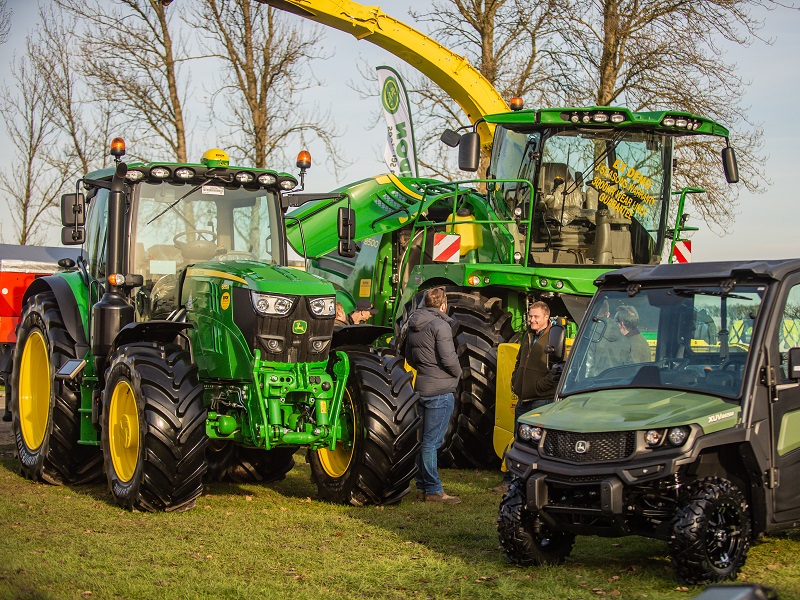Soaring input costs and environmental pressures are driving farmers’ adoption of precision technology, with seamless data collection and analytics helping to hone decision-making.
Awareness of precision technology and data recording has soared from just 5% two years ago to around 55% now, according to John Edwards, technology consultant at Farol. And over the same time, adoption rates among Farol customers have increased to 20-25%.
Speaking at the Midlands Machinery Show on 10 November, Mr Edwards said that all of the firm’s John Deere tractors have JD Link as standard, collating information on fuel efficiencies, working hours, location, and input applications. Seamless transfer of that data to the office allows for quick and easy record-keeping as well as information-based decision-making. “Big data is fantastic, but only if you do something with it,” said Mr Edwards.
JD Link can even produce carbon reports for each tractor or the whole fleet – and as farmers seek to make savings on inputs like fuel, fertiliser and chemicals, their adoption of such precise technology has soared.
According to Stuart McKenzie, CEO at Woldmarsh buying group, ammonium nitrate prices have rocketed from around £250/t a year ago to over £600/t now. Compounded by limited and expensive raw materials, HGV shortages in the UK and recent factory shut-downs, it’s unsurprising that farmers are looking for more efficient ways to use it.
“In my experience farmers aren’t buying less, but with our help they are buying smarter,” said Mr McKenzie. “In uncertain times, having a long-term view of what you need, and buying little and often, will be an effective strategy.”
Crop protection chemicals have also gone up in price – albeit not by the same extreme as fertiliser – and farmers are increasingly adopting precision spraying technology to maximise efficiencies. “Three years ago, next to no sprayers we sold had automatic section or nozzle control; now 25-30% do,” said Nick Snowden, sales manager at Househam Sprayers.
The firm’s new NavGuide GPS system offers greater accuracy for autosteer, turn compensation and section or individual nozzle control. This reduces overlaps and ensures even crop coverage, reducing wastage and protecting the environment, he added. “We’re now moving towards spot spraying using drone mapping; we’re on the cusp of being able to do that.”
Another aspect to improving efficiencies is reducing the number of field passes, and with the move towards regenerative farming there is increasing demand for flexible, low disturbance tillage. Meeting both of these needs is Agri-Weld’s new Multi-Till 5T, which was launched at the show. This trailed machine features a low disturbance subsoiler with leading discs, legs, double concave mixing discs and an Agri-Packer roller, which can be used in a variety of configurations according to soil conditions.
“You can run it with no discs as a subsoiler, with discs to mix the top layer of soil, firmed with the packer to leave a weatherproof finish, or without the packer and legs on wet spots to open up the soil and dry it out,” explained Harry Martin, design engineer at Agri-Weld. “It’s very flexible to meet a variety of different needs.”
Also reducing field passes is Cousins of Emneth’s Crop Check crimper roller, designed to roll, break and bruise cover crops ahead of direct drilling. The front-mounted roller lays the cover crop in the direction of planting to form a dense weed-suppressing mat, with helical blades enhancing the crushing effect, said MD Laura Cousins.
An added benefit is that the roller is likely to qualify for the next round of the Countryside Productivity Small Grant scheme, providing funding towards eligible purchases. “As the usage of cover crops in the rotation is rising, so is interest in this kind of machinery,” she added. “With a direct drill behind you can do both operations in one pass.”
- For more information visit midlandsmachineryshow.com. Next year’s event will be held on 16-17 November 2022.





